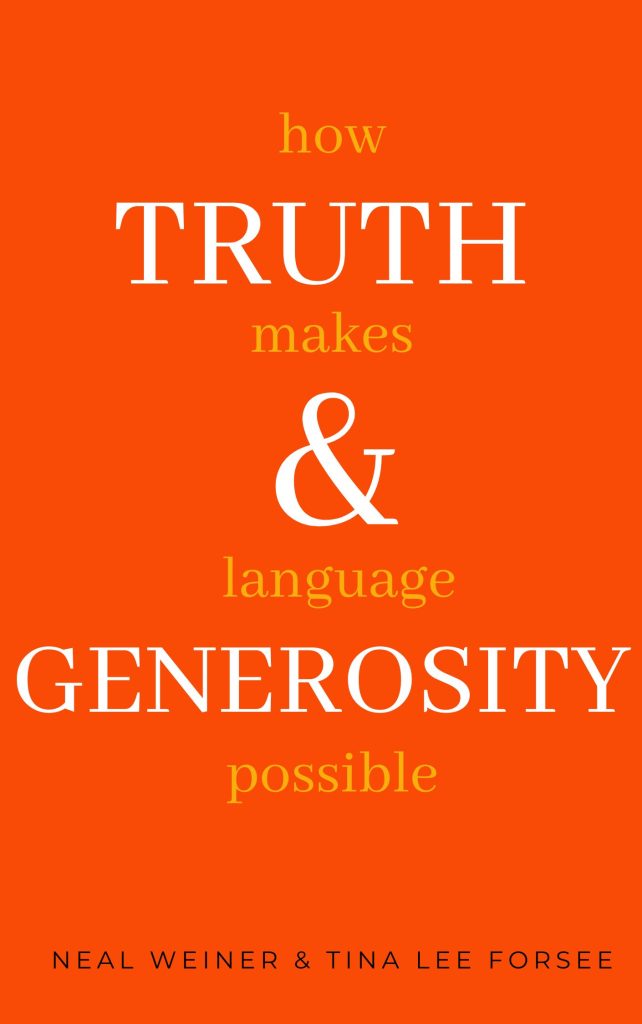Truth & Generosity: how truth makes language possible

For the past few months I’ve been working on a philosophy book, Truth and Generosity, which my husband, Neal Weiner, first drafted over 20 years ago when he was still teaching at Marlboro College. I have been editing a paper copy of a very messy draft with numerous pages missing. I’ve added my own examples and I’ve even written much of the final chapter—Neal has been very good about letting me put my sticky little fingers all over his work.
Excerpt from the Introduction
Human beings do not live in the objective world alone…but are very much at the mercy of the particular language which has become the medium of expression for their society. The worlds in which different societies live are distinct worlds, not merely the same world with different labels attached.
—Edward Sapir, “The Status of Linguistics as a Science”.
Are we really “at the mercy” of the particular language we grew up speaking?
Far from it. Language may shape the way we think about the world to some small extent, but not so much that we can be said to live in distinct worlds. The very fact that we can communicate with each other and translate other languages into our own means there must be a vast body of belief we all share—a body of belief which, taken on the whole, must be true.
To put it in a snappier way: Truth is the condition that makes language possible.
Sign up for my mailing list for updates!